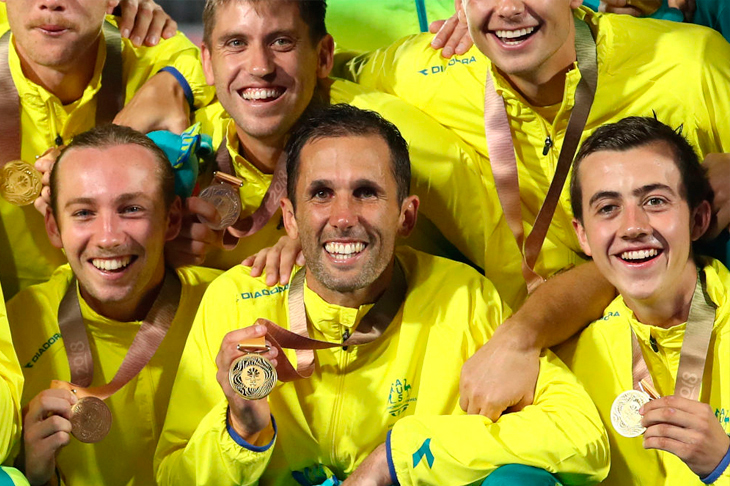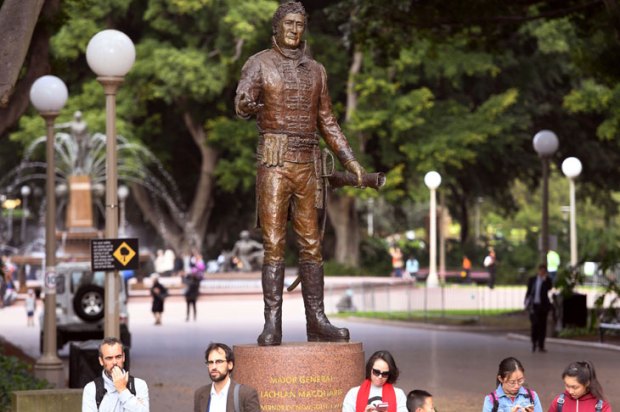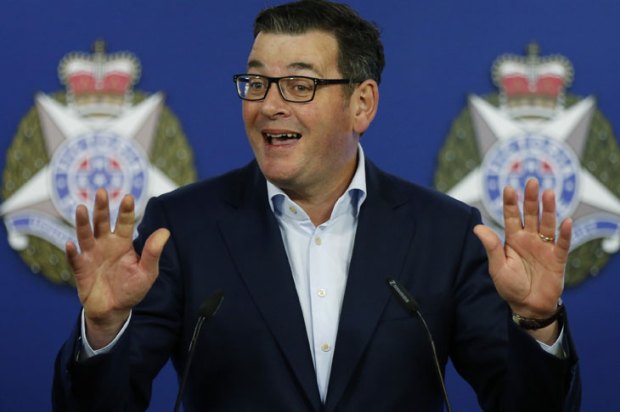Even Australians who consider the Commonwealth Games a meaningless anachronism must have been pleased with our team’s performance last month. I’m not talking about topping the medal table; I’m talking about the opportunities to show the world the kind of sportsmanship which we like to think defines us. Remember our exhausted 10,000m runners staying on the track five minutes after finishing in order to clap the Lesothoan snail across the line? And the shot of one Campbell sibling hugging the other after losing to her? With the cloud of ball-tampering still hanging over us when the Games began, such moments were just what we needed to restore our self-belief.
Normally, though, the only thing we care about is winning – or at least having seats at the top table. When we finished 10th on the medal tally in Rio – six places below where we finished at the 2000 Sydney Olympics – the national disappointment was palpable. What, moaned the pundits, are our coaches doing wrong? Fortunately, for a wealthy, sports-mad country like Australia sporting failure at the elite level is a relatively quick funding fix. We have worried rather less, though, about another, equally dramatic decline in standards which happened over the same period. One which will have much more serious consequences than bruised national pride, and take much longer to reverse – however much funding it receives.
In the year 2000, we were the 6th most literate country in the developed world, according to the OECD. By 2012 we’d dropped to 14th. Every survey since suggests things are getting worse. The latest stats make for grim reading indeed – for those who can still read. The OECD now says that almost half our 15 years-olds have ‘poor or very poor prose literacy’ and almost as many school leavers cannot read well enough ‘to operate efficiently in the workplace’. Right now, parents would substantially increase the chances of their children attaining adult literacy (or numeracy) by putting them up for adoption in Kazakhstan or Vietnam rather than sending them to a local state school.
Mr Turnbull’s description of this situation as ‘not good enough’ is therefore a contender for understatement of the year, and he is to be applauded for asking his mate Gonski to look into the matter. Finally, it seems, we have a government which is prepared to actively address this shameful state of affairs by introducing substantial educational reforms. Reforms which are more likely to improve the foreseeable economic and social futures of our children than anything any government can do about things like global warming or hate speech.
At least, that’s what I hoped before I read about the nature of Gonski 2.0’s recommendations. Because I assumed that any program designed to raise literacy and numeracy standards in schools would begin – and quite possibly end – by upping the number of hours each day that teachers must spend, well, teaching. That is, instilling into the minds of their youngest charges the rudiments of reading, writing and arithmetic, and into the minds of older students the information and methodology which is the key to disciplines like Geography, History and the sciences. Which just goes to show how hopelessly dated my idea of education is. Because according to Gonski 2.0 what today’s teachers should be doing more of is providing children with ‘21st century skills’ like ‘critical and creative thinking’. Instead of equipping them with stuff they will need to get a job, hold a conversation or comprehend a road sign, it tells us, today’s teachers should be devoting their energies to fostering ‘an enquiry approach to learning in the classroom’ and encouraging students to ‘guide their own learning through collaboration and hands on experience.’ And the best thing about these ‘21st century skills’ Mr Gonski would have us believe, is that unlike traditional ‘knowledge based learning’, they may be applied right across the curriculum. And that, at least, made perfect sense to me. After all, if you have spent all morning improving your ability to interact in a caring and inclusive way with your fellow students, it will add to your understanding of, say, Geometry exactly what it adds to your understanding of, say, Shakespeare. Nothing.
Got something to add? Join the discussion and comment below.
Get 10 issues for just $10
Subscribe to The Spectator Australia today for the next 10 magazine issues, plus full online access, for just $10.
You might disagree with half of it, but you’ll enjoy reading all of it. Try your first month for free, then just $2 a week for the remainder of your first year.















Comments
Don't miss out
Join the conversation with other Spectator Australia readers. Subscribe to leave a comment.
SUBSCRIBEAlready a subscriber? Log in